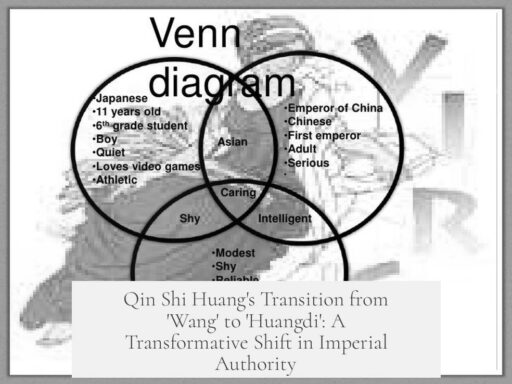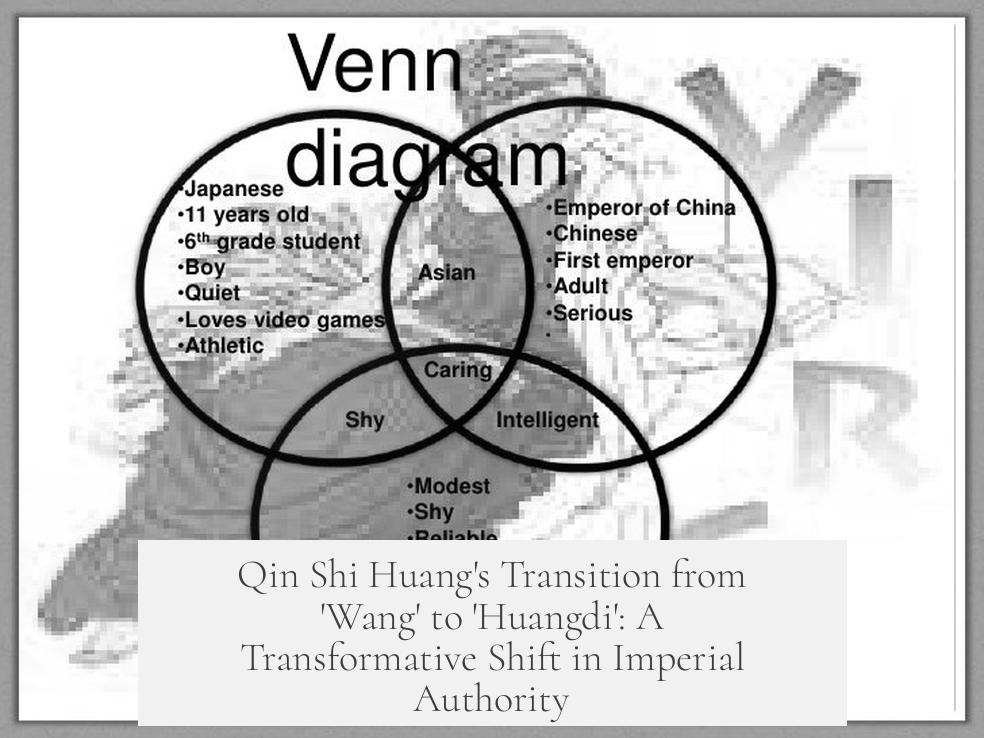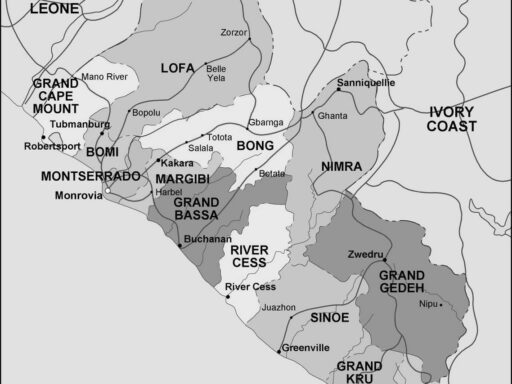Qin Shi Huang’s assumption of the title “Huangdi” marked a crucial shift from the previous title “Wang,” signifying his status as a ruler surpassing all earlier kings and emperors and the establishment of a new imperial era in China.
The word “Huangdi” (皇帝) combines elements from ancient Chinese mythic rulers, the Three Sovereigns (三皇) and the Five Emperors (五帝). By adopting this compound title, Qin Shi Huang claimed superiority over these revered foundational figures, positioning himself not just as a king (王, Wang) but as a ruler surpassing both in glory and stature. This title was designed to express his unique legitimacy and the birth of a new dynasty.
Before unifying China, Qin Shi Huang held the title of Wang, inherited as King of Qin. But the title “Wang” was tied to the feudal system of the Zhou Dynasty, which by then had weakened and lost meaning. Retaining “Wang” could suggest continuity with a failing order. By rejecting “Wang” in favor of “Huangdi,” Qin Shi Huang deliberately distanced himself from the old Zhou feudal order and its declining system.
This new title also reflected Qin Shi Huang’s sweeping reforms. He centralized power, created a new imperial administration, and introduced standardized weights and measures across China. He was not merely continuing an old system but establishing a fundamentally new state structure. “Huangdi” symbolized the founding of this new empire with Qin Shi Huang as its head and first sovereign in a line of emperors.
Additionally, the title conveyed an assertion of semi-divine status. By linking himself to mythic sovereigns and claiming superiority over them, Qin Shi Huang made a bold statement about his rule. Although not an outright divine claim, the title carried a tone of sacred authority intended to reinforce his absolute position.
| Aspect | Significance |
|---|---|
| Combination of Three Sovereigns & Five Emperors | Claims supremacy over historic mythic rulers |
| Break from “Wang” (King) | Rejects feudal Zhou legacy; creates new imperial order |
| Creation of new bureaucracy | Centralizes power and reforms government systems |
| Semi-divine connotation | Reinforces unmatched ruler status with sacred authority |
- “Huangdi” combines mythic ruler titles, signaling a new level of sovereignty.
- The change from “Wang” marks a break with the weakened Zhou feudal system.
- It establishes Qin Shi Huang as founder of a centralized empire with novel governance.
- The title carries a semi-divine claim to enhance Qin Shi Huang’s political authority.
What Was the Significance of Qin Shi Huang Assuming the Title of ‘Huangdi’ Over the Previous ‘Wang’?
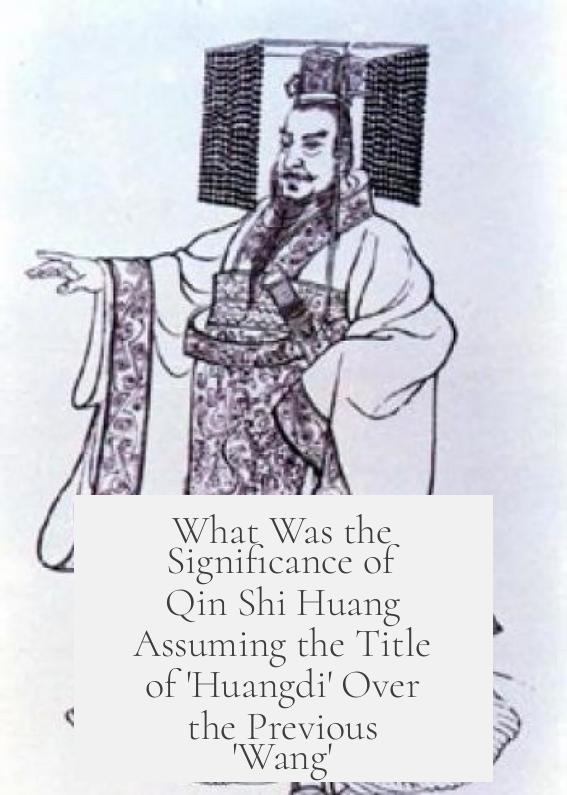
The moment Qin Shi Huang crowned himself Huangdi, not Wang, he wasn’t just changing his title—he was flipping the entire political script in ancient China. This was a monumental shift in how rulers saw themselves and how they wanted to be seen. But why exactly did it matter? Let’s dive deep into the throne room of history and uncover the layers behind this game-changing title choice.
First, it’s important to understand the background of the title Wang, which simply means “king.” Qin Shi Huang was already the Wang—the King of Qin—before he unified the many fragmented states of China. But Wang wasn’t just any title; it had strong ties to the Zhou Dynasty’s feudal past. By adopting Wang, Qin Shi Huang would have been signaling continuity with the old regime—something he desperately wanted to avoid. The Zhou’s system was crumbling, ineffective, and discredited. Sticking with Wang would have looked like a weak attempt to revive a failing dynasty.
So, he chose Huangdi. Why the switch? The answer lies in the makeup of the title itself.
- Huangdi is a combo word: It fuses elements from the “Three Sovereigns” (San Huang) and the “Five Emperors” (Wu Di), two groups of legendary rulers in Chinese mythology. These figures represented ideal leadership and divine authority in China’s ancient cultural memory.
- By picking a title made up of these mythical paragons, Qin Shi Huang was making a bold, semi-divine boast: He wasn’t just a mortal king. He was claiming to have outdone those legendary figures in glory and stature. That’s like a rockstar saying, “I’m not just the lead singer—I’m the whole band.” It carried an aura of semi-divinity, though it stopped short of outright declaring him a god.
In essence, Huangdi signified superiority and new order—not just a continuation of the old feudal systems. It proclaimed Qin Shi Huang as the founder of a new empire, not a successor of the old states system. This title change wasn’t cosmetic. It was foundational, marking the dawn of what historians now call the Imperial China system.
Think about the practical side: when Qin Shi Huang became Huangdi, he wasn’t just styling himself differently. He backed that up with sweeping reforms that touched virtually every aspect of governance. From rewriting the bureaucratic rulebook to standardizing weights, measures, and even the writing system, he reshaped China to fit a centralized empire. The title highlighted his new, elevated role at the apex of a revolutionary government.
It also sent a crystal-clear message domestically and internationally: The Wang days were over. This was a fresh start. The title Huangdi didn’t just crown Qin Shi Huang as ruler—it established him as the pioneer of an eternal empire. The emperor wasn’t just a local ruler of Qin; he was the emperor over all the lands he unified, a symbolic and literal shaper of the new world order.
The Real-World Impact of This Title Change
Titles may seem like fancy words, but in the 3rd century BCE people took these things seriously—like very seriously.
- Hierarchy and Power: By choosing Huangdi, Qin Shi Huang amplified his power beyond that of a regional king into something much grander.
- Legitimacy: The mythical connotations helped legitimize his rule in traditional Chinese culture, where divine approval mattered.
- Cultural Unity: The new title helped foster a sense of unity under a centralized government, something that fragmented feudal titles like Wang couldn’t inspire anymore.
- Long-lasting Symbol: The dynasty and centuries that followed used the title Huangdi (Emperor), cementing Qin Shi Huang’s place as a pioneer of the imperial tradition.
You could say Qin Shi Huang played king-making like a boss by merely crafting a new title—and then backing it with real power.
But Is This Title Boost Just Straight Ego?
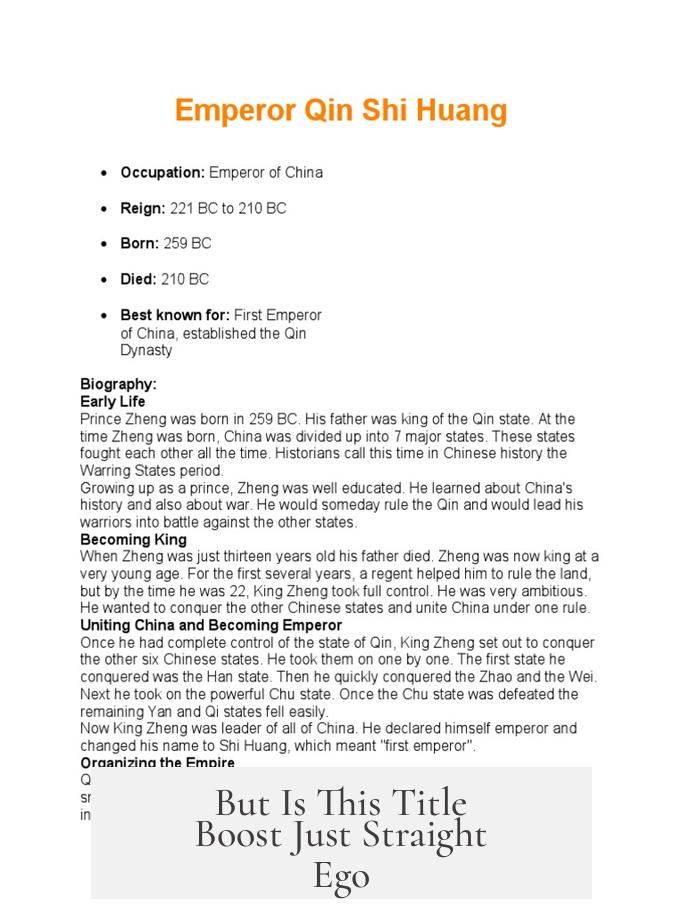
“Not quite divine, but tinged with divinity”—this semi-divine claim is key. Qin Shi Huang’s new title was an assertive political tool, riding the wave of mythology but without crossing into full godhood territory. A smart move keeping one foot in reality while molding public perception into something grander.
The title made him neither just a man nor a mere mortal king but a ruler elevated above human status through culture and symbolism. It gave his government the mystique to command loyalty and awe while keeping his feet firmly on the ground of tangible rule.
In Conclusion: More than a Name—A New Age
Qin Shi Huang’s adoption of the title Huangdi was a strategic, symbolic, and political masterstroke that announced a brand new era for China. It left behind the fractured feudal past and embraced centralized power under an almost mythical authority.
The move conveys clear lessons for leadership today: a title is more than a label. It’s a declaration of vision, a statement about identity, and a rallying call for change. Qin Shi Huang’s example reminds us how a single word can shape history.
Next time you encounter titles—be it CEO, president, or manager—remember: sometimes, it’s not just what you do but what you call yourself that signals the true game-changer.
